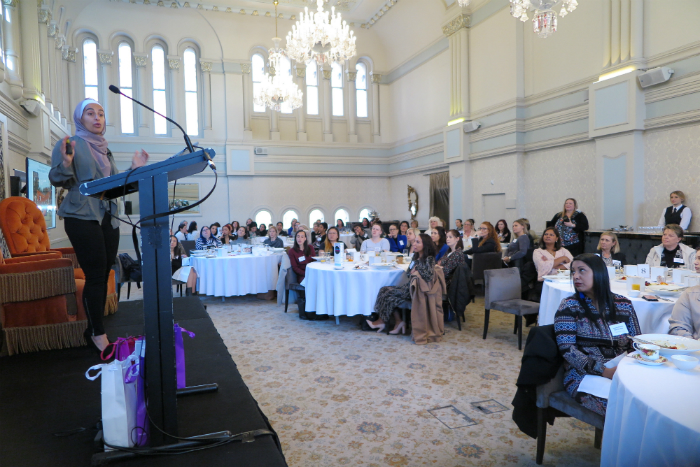
Women in Print’s 11th annual series wrapped up today, with its two week long national tour ending with its final breakfast in Melbourne.
The initiative has seen women in the print media industry gather for the annual networking event in August across Sydney, Perth, Adelaide, Brisbane and Melbourne. This year, sponsors included IVE, Kwik Kopy, Media Super with support from Currie Group and HP.
Opening the event for more than 100 attendees yesterday in Sydney were Bobbi Mahlab, managing director and founder for Mahlab Media and Melissa Hayes, the marketing and communications general manager for Blackwood.
Mahlab said on print’s role in media post digital disruption, “I look at us as a small company compared to Fairfax and I am proud of the way we have adapted. Print remains important.
“Three years ago would have said print is declining in publications. We just did a survey within our company and that prediction was wrong, the numbers show otherwise.
“I think it is the tangibility of it, and the visibility of print. You can have the long read, you can sit back. It is the immersive experience that print gives.”
[Related: Women in Print gives donation to Grida's memory]
Mahlab also gave light to Mentor Walks, an initiative she cofounded for women to give advice and help each other with career decisions, while walking.
She said, “Women do not take the same risks in business that men do. If you have people that can advice you, it helps to advance your career. We want to help as many women as possible get success.”
The key speaker for the series has been Amna Karra-Hassan, activist and advocate for diversity, inclusion and gender equality. She addressed the crowd with her own experience of starting her own womens AFL team in western Sydney, along with bringing it to a professional level alongside the Greater Western Sydney Giants team, despite social and other obstacles.
Karra-Hassan said, “If you want to achieve greatness, stop asking for permission.
“We say we care about women but we do not, if we still need gender equality and gender reform in businesses, it is symptomatic of a larger problem with society.”
On print, Karra-Hassan added, “Culturally diverse communities are oral and they need to see things in front of them. Print is visible, and can be more so than digital technology.”
Comment below to have your say on this story.
If you have a news story or tip-off, get in touch at editorial@sprinter.com.au.
Sign up to the Sprinter newsletter
